
In the process of web development, we often encounter situations where the background image is not displayed when using jQuery. This problem may occur in different scenarios, including loading path errors, image resources not found, code logic errors, etc. The following are some common solutions and specific code examples:
-
Confirm whether the image path and naming are correct:
When using jQuery to set the background image When doing this, first make sure the image path and name are correct. If the path is wrong or the image resource is not found, the background image cannot be displayed normally. It is recommended to use absolute path or relative path to specify the image path. For example:
$('#element').css('background-image', 'url(/images/background.jpg)'); -
Check whether the image resource loading is complete:
When the web page is loaded, there may be network problems or image resource loading order issues. As a result, the background image cannot be displayed. In order to ensure that the image resource is loaded completely, you can use the
onloadevent to monitor whether the image is loaded completely. For example:$('<img src="/static/imghwm/default1.png" data-src="/images/background.jpg" class="lazy" alt="How to solve the problem of jQuery image background not displaying" >').on('load', function() { $('#element').css('background-image', 'url(/images/background.jpg)'); }); -
Make sure the element has sufficient height and width:
If you set a background image but the image cannot be displayed, it may be because of the element The height and width are not enough, causing the image to be hidden or cropped. You can ensure that the background image is fully displayed by setting the height and width of the element. For example:
#element { width: 100px; height: 100px; } -
Check whether the code logic is correct:
Sometimes the background image cannot be displayed because of code logic errors, such as DOM element selection Errors, CSS style setting errors, etc. Just make sure the code logic is correct, the element selector is correct, and the style settings are correct. For example:
$('.element').css('background-image', 'url(/images/background.jpg)');
Through the above methods, you can solve the problem of jQuery setting the background image not to display. In the actual development process, it is necessary to choose a suitable solution based on the specific situation, and carefully check the code logic to ensure that the picture can be displayed correctly. Hope the above content helps to solve this problem.
The above is the detailed content of How to solve the problem of jQuery image background not displaying. For more information, please follow other related articles on the PHP Chinese website!
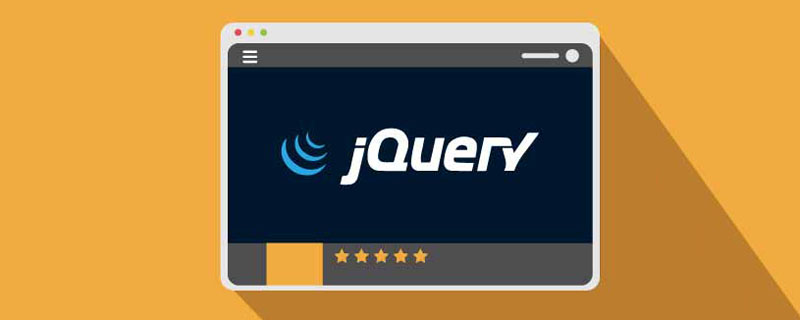 jquery实现多少秒后隐藏图片Apr 20, 2022 pm 05:33 PM
jquery实现多少秒后隐藏图片Apr 20, 2022 pm 05:33 PM实现方法:1、用“$("img").delay(毫秒数).fadeOut()”语句,delay()设置延迟秒数;2、用“setTimeout(function(){ $("img").hide(); },毫秒值);”语句,通过定时器来延迟。
 jquery怎么修改min-height样式Apr 20, 2022 pm 12:19 PM
jquery怎么修改min-height样式Apr 20, 2022 pm 12:19 PM修改方法:1、用css()设置新样式,语法“$(元素).css("min-height","新值")”;2、用attr(),通过设置style属性来添加新样式,语法“$(元素).attr("style","min-height:新值")”。
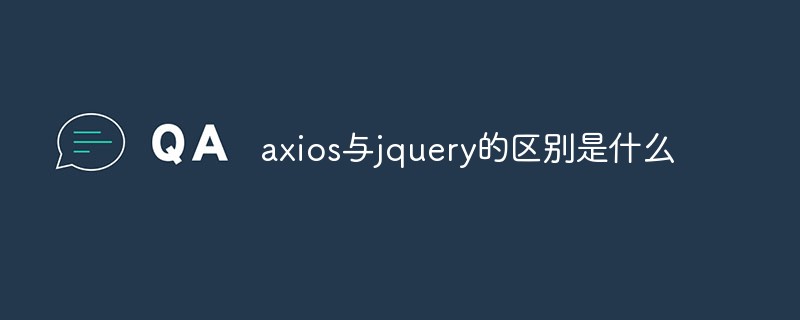 axios与jquery的区别是什么Apr 20, 2022 pm 06:18 PM
axios与jquery的区别是什么Apr 20, 2022 pm 06:18 PM区别:1、axios是一个异步请求框架,用于封装底层的XMLHttpRequest,而jquery是一个JavaScript库,只是顺便封装了dom操作;2、axios是基于承诺对象的,可以用承诺对象中的方法,而jquery不基于承诺对象。
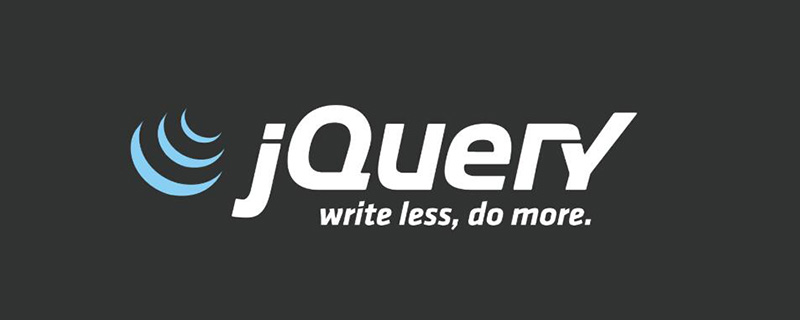 jquery怎么在body中增加元素Apr 22, 2022 am 11:13 AM
jquery怎么在body中增加元素Apr 22, 2022 am 11:13 AM增加元素的方法:1、用append(),语法“$("body").append(新元素)”,可向body内部的末尾处增加元素;2、用prepend(),语法“$("body").prepend(新元素)”,可向body内部的开始处增加元素。
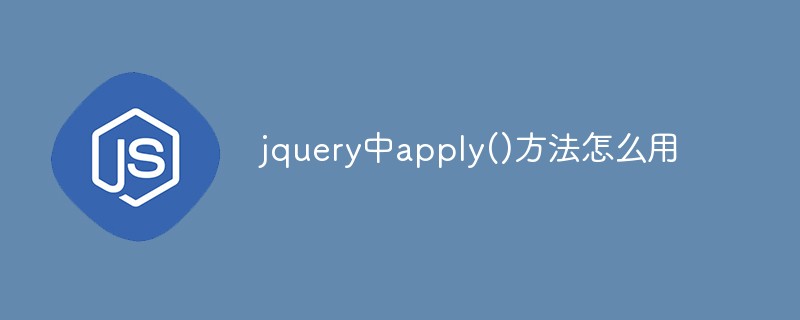 jquery中apply()方法怎么用Apr 24, 2022 pm 05:35 PM
jquery中apply()方法怎么用Apr 24, 2022 pm 05:35 PM在jquery中,apply()方法用于改变this指向,使用另一个对象替换当前对象,是应用某一对象的一个方法,语法为“apply(thisobj,[argarray])”;参数argarray表示的是以数组的形式进行传递。
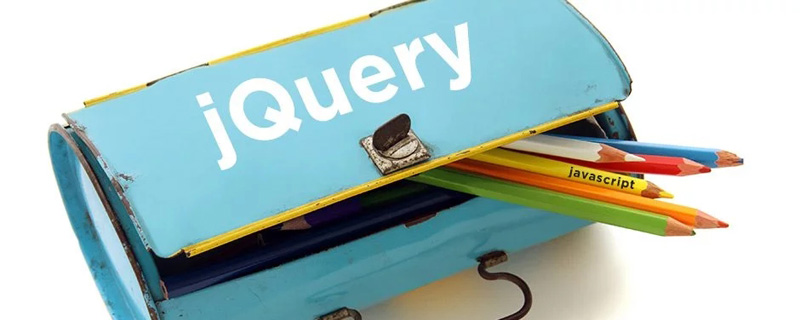 jquery怎么删除div内所有子元素Apr 21, 2022 pm 07:08 PM
jquery怎么删除div内所有子元素Apr 21, 2022 pm 07:08 PM删除方法:1、用empty(),语法“$("div").empty();”,可删除所有子节点和内容;2、用children()和remove(),语法“$("div").children().remove();”,只删除子元素,不删除内容。
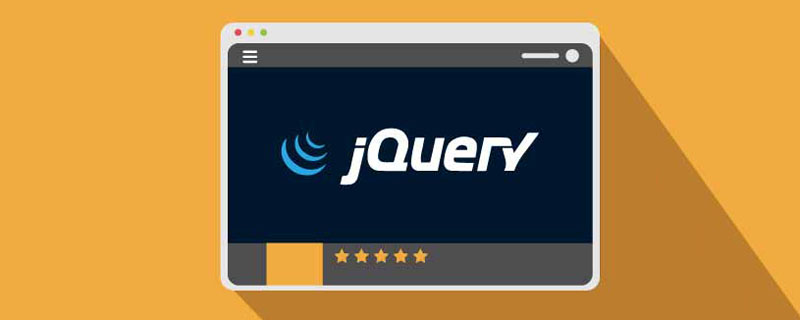 jquery on()有几个参数Apr 21, 2022 am 11:29 AM
jquery on()有几个参数Apr 21, 2022 am 11:29 AMon()方法有4个参数:1、第一个参数不可省略,规定要从被选元素添加的一个或多个事件或命名空间;2、第二个参数可省略,规定元素的事件处理程序;3、第三个参数可省略,规定传递到函数的额外数据;4、第四个参数可省略,规定当事件发生时运行的函数。
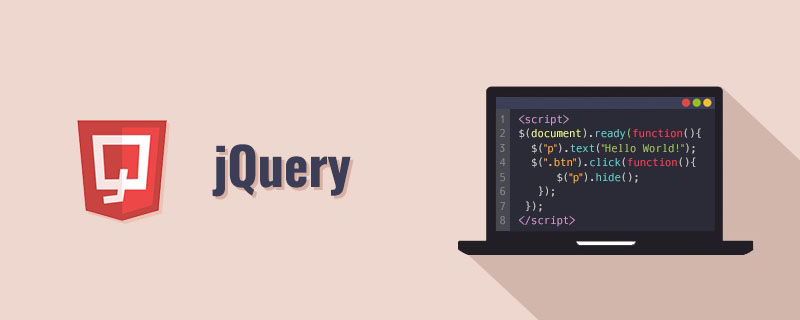 jquery怎么去掉只读属性Apr 20, 2022 pm 07:55 PM
jquery怎么去掉只读属性Apr 20, 2022 pm 07:55 PM去掉方法:1、用“$(selector).removeAttr("readonly")”语句删除readonly属性;2、用“$(selector).attr("readonly",false)”将readonly属性的值设置为false。


Hot AI Tools

Undresser.AI Undress
AI-powered app for creating realistic nude photos

AI Clothes Remover
Online AI tool for removing clothes from photos.

Undress AI Tool
Undress images for free

Clothoff.io
AI clothes remover

AI Hentai Generator
Generate AI Hentai for free.

Hot Article

Hot Tools

VSCode Windows 64-bit Download
A free and powerful IDE editor launched by Microsoft

SublimeText3 Mac version
God-level code editing software (SublimeText3)

Zend Studio 13.0.1
Powerful PHP integrated development environment

mPDF
mPDF is a PHP library that can generate PDF files from UTF-8 encoded HTML. The original author, Ian Back, wrote mPDF to output PDF files "on the fly" from his website and handle different languages. It is slower than original scripts like HTML2FPDF and produces larger files when using Unicode fonts, but supports CSS styles etc. and has a lot of enhancements. Supports almost all languages, including RTL (Arabic and Hebrew) and CJK (Chinese, Japanese and Korean). Supports nested block-level elements (such as P, DIV),

SAP NetWeaver Server Adapter for Eclipse
Integrate Eclipse with SAP NetWeaver application server.






